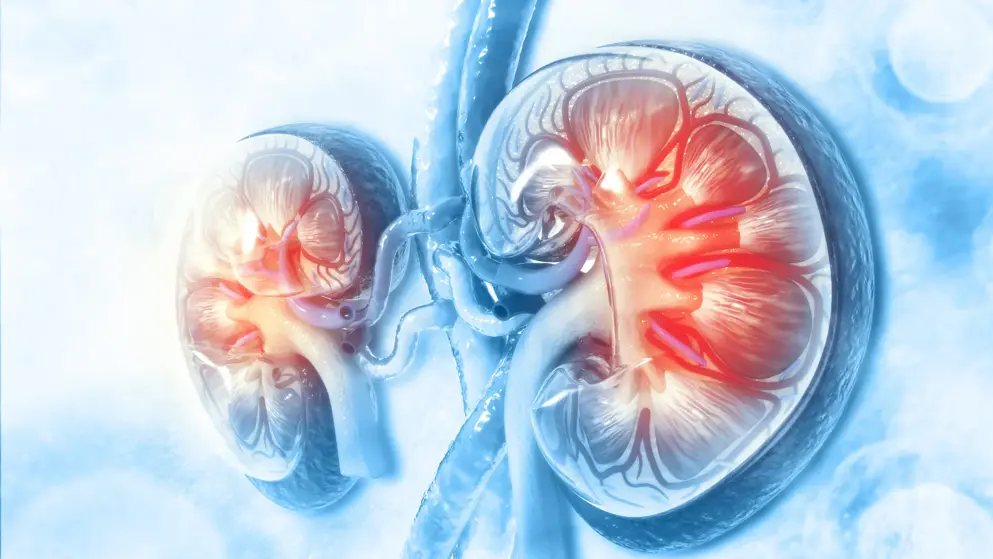Transforming Growth Factor-β1/Smad Signaling in Glomerulonephritis and Its Association with Progression to Chronic Kidney Disease
Transforming Growth Factor-β1/Smad Signaling in Glomerulonephritis and Its Association with Progression to Chronic Kidney Disease
Introduction: Transforming growth factor-β1 (TGF-β1) is a multifunctional cytokine, with diverse roles in fibrosis and inflammation, which acts through Smad signaling in renal pathology. We intended to investigate the expression of TGF-β/Smad signaling in glomerulonephritis (GN) and to assess its role as risk factor for progression to chronic kidney disease (CKD).
Methods: We evaluated the immunohistochemical expression of TGF-β1, phosphorylated Smad3 (pSmad3), and Smad7 semiquantitatively and quantitatively using computerized image analysis program in different compartments of 50 renal biopsies with GN, and the results were statistically analyzed with clinicopathological parameters. We also examined the associations among their expressions, the impact of their co-expression, and their role in progression to CKD.
Results: TGF-β1 expression correlated positively with segmental glomerulosclerosis (p= 0.025) and creatinine level at diagnosis (p = 0.002), while pSmad3 expression with interstitial inflammation (p = 0.024). In glomerulus, concomitant expressions of high Smad7 and medium pSmad3 were observed to be correlated with renal inflammation, such as cellular crescent (p = 0.011), intense interstitial inflammation (p = 0.029), and lower serum complement (C) 3 (p = 0.028) and C4 (p = 0.029). We also reported a significant association between pSmad3 expression in glomerular endothelial cells of proliferative GN (p = 0.045) and in podocytes of nonproliferative GN (p = 0.005). Finally, on multivariate Cox-regression analysis, TGF-β1 expression (hazard ratio = 6.078; 95% confidence interval: 1.168-31.627; p = 0.032) was emerged as independent predictor for CKD.
Discussion/conclusion: TGF-β1/Smad signaling is upregulated with specific characteristics in different forms of GN. TGF-β1 expression is indicated as independent risk factor for progression to CKD, while specific co-expression pattern of pSmad3 and Smad7 in glomerulus is correlated with renal inflammation.
Read abstract on library site Access full article





